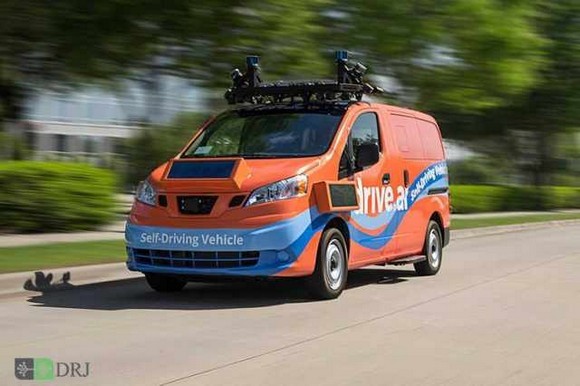When one looks at the myriad science fiction films that have made it into the zeitgeist, many images and ideas come to mind. Colonization, asteroid mining, space battles, interplanetary public transport, and even space shopping malls.
All that, however, brings into question a major issue: who owns outer space?
In fact, can you own anything in space at all?
Averting a territorial war
World leaders, foreseeing the potential for territorial conflict over space resources and land during the peak of the space race, signed an agreement known as the Outer Space Treaty. It was passed in 1967, two years prior to the US moon landing.
The United Nations Office for Outer Space Affairs (UNOOSA) states that as of April 2018, 107 countries are parties to the treaty, while another 23 have signed it but have not completed ratification. Space is further bound by four other treaties, all in hopes of eliminating the possibility of any malicious activity or action beyond the reaches of Earth.
The Outer Space Treaty covers many issues of international security, such as the placement of weapons of mass destruction in space, as well as the prohibition of military weapons testing. As for the matter of space ownership, the Treaty states that “the exploration and use of outer space is for all humankind… and no country can lay claim to the Moon or any other celestial body.”
Essentially, space ownership is illegal. No one can lay claim to the moon, the stars or any celestial body. Neil Armstrong’s staking of the American flag on the moon was merely a gesture, not an official demarcation.
If you can’t buy, you can’t rent, and so it seems like a Starbucks or McDonald’s at every corner of the moon will not turn into reality.
Or will it?
READ: UAE’s explorers of the final frontier
Space ownership is inevitable
As we get closer and closer to a reality where interplanetary travel becomes as easy as a road trip across the state, governments will be put in a difficult position. Innovators such as Elon Musk and his SpaceX program are already making progress in facilitating space travel. Sooner or later, whether in this century or the next one, space travel will become commonplace.
When that happens, you can be certain that major corporations will begin lobbying for rights to operate outside Earth. In fact, it is already happening.
Private US mega-companies Deep Space Industries and Planetary Resources are already eyeing asteroids for their resources.
Planetary Resources’ background profile on their site explains that “the company [has] successfully lobbied towards the passage of the U.S. Commercial Space Launch Competitiveness Act (H.R. 2262) which recognizes the right of U.S. citizens to own asteroid resources they obtain and encourages the commercial exploration and utilization of resources from asteroids.”
This situation arose because the Outer Space Treaty is somewhat outdated and not all-encompassing, which is allowing companies such as this to exploit the loopholes for their benefit.
Frans von der Dunk, a space lawyer writing for The Conversation, explains it best. Basically, corporations are approaching asteroids as they do the high seas – regions not under the control of any sovereign state.
Read: Cryptos get their own TV show, starring Blockchain & Bitcoin
Like the rocky celestial bodies in question, the ocean belongs to no one, but once you extract a resource, be it fish from the sea or diamonds from an asteroid, it now belongs to you. It’s a clever way for these American companies to skirt the boundaries of international law. When has humanity ever let anything stand in the way of making profits?
One man, American citizen Dennis Hope, has scammed people for millions after “selling” them land on the moon.
He posited that the Outer Space Treaty forbade countries from owning land on the moon, but not individuals. However, no official body has corroborated his sales or supposed transfer of ownership, which basically reduces him to nothing but a con artist.
From a purely economic perspective, it makes sense to allow businesses to operate outside the planet’s atmosphere.
New avenues such as the Moon and Mars pose ripe opportunities for investment and entrepreneurship, which would bolster economies back home. From an ethical perspective, however, things are not as clear-cut. Should space enterprises benefit private groups and individuals, or should the entirety of humanity reap the benefits?
The question is still in debate. Yet, when have moral quandaries ever stopped corporations from pursuing the almighty dollar?
READ: UAE Space Agency signs a deal with NASA on exploration
The enterprises of the final frontier
Astronauts and colonists will need something to wear, something to eat, something to drive and somewhere to sleep. This is an entirely new market waiting to be exploited. We could be seeing something along the lines of “Prada for the Trendy Explorer,” or “Calvin Klein for the Pioneer,” and “Holiday Inn Luna” for the luxurious space experience.
Before you know it, we’ll be sipping “Stardust Frappuccinos” at Starbucks.
In a flash, companies will have their brands on everything. “Pepsico: The licensed provider of Mars water.” “IKEA: The official sponsor of the Alpha Mars Colony.” The possibilities are endless.
On an industrial level, space offers a whole array of options. “Space diamonds” are often found in meteorites, which could bring a new addition to the precious gemstone market. Will we read about “space diamond” smugglers in the news? It’s entirely possible.
With countries around the globe showing interest in the future of space development, such as the US, Russia, Japan, China and even the UAE, we could be on the cusp of another space race. This time, however, the stakes are even higher, and the repercussions will be felt for centuries to come.
Will future generations be reading this article from their Mars condos, from the hundredth iteration of an iPad? They very well might.
READ: Emirati lift-off: Nine qualify for final UAE astronaut-program shortlist
The post Stardust Frappuccinos: Will corporations own outer space? appeared first on AMEInfo.

ایده ها برای استارت آپ موجب رونق کسب و کارهای اینترنتی
آینده / استارت آپ

استارتآپها ادبیات بازار سرمایه را بلدند؟
استارت آپ

صدور تاییدیه دانش بنیانی شتابدهنده صدر فردا
اخبار / استارت آپ

اپلیکیشن شارژاپ
گوناگون / استارت آپ / رپرتاژ آگهی / بازتاب

جذابترین ایدههای B2B در سال 2020
استارت آپ

تعریف استارت آپ startup
دانشنامه / استارت آپ / مقاله

۱۰ استارتاپ که بدون سرمایه به سوددهی رسیدند
استارت آپ

ایده ها و پیشنهاد برای استارت آپ در سال جدید
راهکارها و ترفند ها / استارت آپ

استارتآپ ایرانی؛ مرجع اول زنان افغان
استارت آپ

شروع یک کسب و کار نوپا پلتفرمی
استارت آپ

برنامه شبکه اجتماعی تیندر
گوناگون / معرفی وب سایت / استارت آپ

10 استارت آپ برتر تاکسیرانی جهان
استارت آپ

پخت پیتزاهای هیجان انگیز با هوش مصنوعی
آینده / استارت آپ

ایده های استارتاپی فراموش شده
دورنما / بازار / استارت آپ

اپل، استارتاپ فناوری خودران Drive.ai را تصاحب کرد
استارت آپ

بررسی مهمترین چالشهای تیمهای استارتاپی
استارت آپ

نگرانی کاربران از هزینه تعمیر و تامین قطعات
گفت و گو / بازار / استارت آپ

مصاحبه با مدیرعامل و بنیانگذار استارتاپ Moz
گفت و گو / استارت آپ

آشنایی با استارت آپ های حوزه مدیریت آب
استارت آپ

راه اندازی ۷۰ استارت آپ توسط نخبگان ایرانی
استارت آپ

معرفی هشت استارتآپ موفق ایرانی در حوزه فینتک
استارت آپ

اولین مرورگر شرعی دنیا
استارت آپ

از صفر تا پیست
استارت آپ

معرفی برترین استارتاپهای CES 2019
اخبار / استارت آپ

ازدواج با فرد ثروتمند یا خوش اخلاق
سبک زندگی / برترین ها

هدف از تشکیل خانواده چیست
سبک زندگی

اول عاشق شویم، بعد ازدواج کنیم
سبک زندگی

خانواده چیست
سبک زندگی

مشاوره خانواده چیست؟
سبک زندگی

اولویتهای پسانداز خانواده چیست؟
سبک زندگی

هزینه های خانواده چیست؟
سبک زندگی

راهکار بیشتر حرف زدن اعضای خانواده چیست؟
سبک زندگی

چرخه زندگی و خانواده چیست؟
سبک زندگی

اهداف و اصول تشکیل خانواده
سبک زندگی

آموزش جنسی نادرست به سبک خانم جلسه ای
سبک زندگی

لطفا تماشاچی آزار زنان نباشید!
سبک زندگی

کودک آزاری؛ از نشانهها و دلایل تا درمان
گزارش / سبک زندگی / پرورش کودکان

روش های تعیین هدف و مسیر زندگی برای رسیدن به موفقیت
سبک زندگی
مجله اینترنتی دیپروتد نشریه مجازی بر بستر اینترنت به مسائل آموزشی و مقالات پیرامون کسب وکار های نوپا یا استارت آپ ها و سبک زندگی است فعالیت و محتوای مطالب ارائه شده در سایت همه بیشتر در حوزه مدیریت، کارآفرینی ، روانشناسی ،اقتصادی و فناوری اطلاعات است نام اصلی دیپروتد "ریشه های عمیق " با مجوز رسمی از هیات نظارت برمطبوعات مشغول به فعالیت است
ما را در شبکه های اجتماعی دنبال کنید
تمامی حقوق برای سایت فوق محفوط است.
S-TECH: ایرانی توانمند | Powered by: مجله اینترنتی دیپروتد










